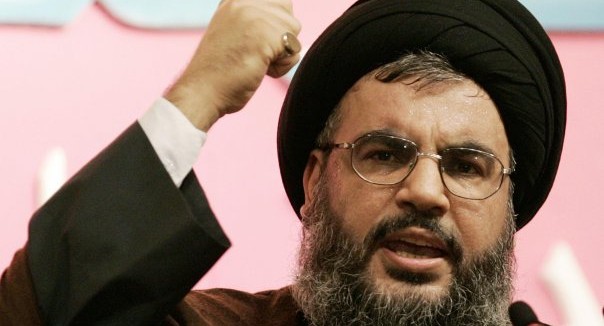A wave of condemnation against Hezbollah has broken out in Lebanon over the terrorist organization’s ongoing involvement in the Syrian civil war and clashes that haven broken out in Lebanon in recent weeks, particularly in Tripoli.
On Sunday, Hezbollah leader Hassan Nasrallah once again defended the organization’s involvement in the Syrian crisis, saying his men were fighting against U.S. and Israel hegemony. The Lebanese Daily Star newspaper quoted him saying:
We do not need a religious justification to fight in Syria… we are fighting to defend Lebanon and the region so that what ISIS commander Abu Bakr Baghdadi had done to Iraq’s Allbu Nimer tribe would not be repeated [in Lebanon].
In response to Nasrallah, prominent Lebanese politician Ahmad Fatfat stressed that Hezbollah’s refusal to withdraw its fighters from the Syrian front shows the party does not prioritize Lebanon’s interests. Fatfat told the local radio station Voice of Lebanon 100.3:
Hezbollah is not interested in the national interest of Lebanon… [Nasrallah] is still insisting to involve Lebanon in the matters of the conflict in Syria and to defend the regime of Bashar Al-Assad.
Further criticism (Arabic link) came from Lebanese justice minister Ashraf Rifi. In an interview published in the Saudi newspaper Ocaz, Rifi accused Hezbollah of causing the tense atmosphere in Lebanon, and said that Nasrallah is the main reason for terrorism and for the conflict between Sunnis and Shiites.
Hezbollah combatants have been fighting on the side of Syrian President Bashar Al-Assad since the eruption of the civil war. That war, which began as a peaceful conflict in March 2011, has left more than 200,000 people dead and millions more as refugees.
In the past year, Islamic State of Iraq and Syria (ISIS) forces have grown increasingly active on Lebanon’s eastern border with Syria. Working together, ISIS and Jabhat al-Nusra forces kidnapped two dozen Lebanese soldiers from a border post in August.
Last month, four days of brutal fighting between ISIS fighters and the Lebanese army in and around Tripoli, Lebanon’s second largest city, reignited fears that Lebanon could be descending once again into civil war. At least 42 people were reported killed.
Two weeks ago signs of internal dissension within Hezbollah’s ranks were reported in the Arabic media.
[Photo: hAwrA حـوراء / flickr]




